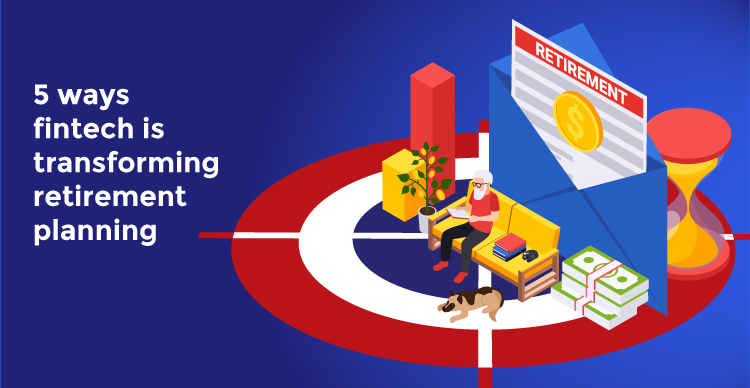
Reports show that Americans who plan to rely wholly on the Social Security program for their retirement corpus may be making a mistake. By 2035, the number of Americans 65 and older will increase to more than 78 million, which will mean that more people will be taking money out of the Social Security system than paying into it.
This doesn’t necessarily mean you’re going to run out of money. However, it does mean that those planning for retirement need fresher, newer, and more tech-savvy advice to help guarantee long-term financial security. Fintech, with its emphasis on data analysis, can undoubtedly reshape how one prepares for the golden years.
Check out these five ways fintech is already disrupting the retirement planning industry.
1. Get set, automate!
Auto-enrollment, automatic payroll deductions, and automated target-date funds… people are increasingly using AI-assisted technology, mobile apps, blockchain-based solutions, and other online tools to demystify, simplify, and track investments to facilitate financial planning and budgeting for their senior years.
Going the automated way could increase pension access and improve financial outcomes. A World Economic Forum analysis has predicted a $400 trillion savings gap by 2050, but automation is the game-changer. Automating savings can bump up savings rates each year, nudging people to make more balanced, risk-appropriate choices.
2. Safety first in the cyber world
Retirement planning involves entering large quantities of personal information to an employer and an outside retirement planning agency to ensure that funds are handled correctly. Therefore, cybersecurity is at the forefront.
Research from Mercer has found that 49% of Americans fear their financial data will be leaked if they use technology-driven tools for financial planning. With reports that 401(k) plans are an attractive target for hackers, cyber-wise fintech ensures that retirement planning is as safe as possible. The Federal Communication Commission has created a cybersecurity planning guide, while the Department of Labor has begun auditing plans to test whether retirement planning advisers are following proper cybersecurity protocols. The right fintech ensures retirement funds are kept safe and secure.
3. Everyone’s new friend, the Robo-Advisor
World over, a significant fraction of the population lacks basic financial literacy, which hinders effective retirement planning. With the surge in automated advice platforms, robo-advisors have come to the fore to offer professional investment management services. They are cost-efficient and effective and intended to interact with clients digitally, gather information, and manage investments.
The robo-advisor uses computer algorithms based on questions answered by clients on risk preferences, assets, debt, and financial goals to offer investment selections. As they follow optimized strategies best, they are seen as an inexpensive solution to the intricacies of prudent retirement planning.
4. Customization and visualization
If Spotify can play the kind of music each user loves, what’s stopping fintech from personalizing retirement investments? We live in an age of personalization where artificial intelligence and machine learning use more sophisticated data analysis to make to order. From helping millennials plan their retirement in bytes to betting on safe returns for traditional investors, digital platforms make customized asset allocation possible to maximize savings.
What about visualization? Just as a sports psychologist uses visualization techniques to help a tennis player improve her game, retirement planners are now using them to set the primary financial objectives of a retiree. Want a home, planning to work after retirement, planning a business of your own? AI-assisted visualization can help retirement planners and clients understand what they want for their future.
5. Record-keeping done right
Over the years, 401(k) record-keeping tech has evolved from a confusing, time-consuming and costly process to a more integrated and hassle-free one. Digital AI-assisted record-keeping ensures easy and fast document access and better data security and compliance.
In 2020, at the start of the pandemic, recordkeepers say that daily call volumes increased by up to 60%. Beyond transactional demand, recordkeepers saw a sustained increase in demand for holistic wealth advice, according to a McKinsey report. Many firms have since begun offering financial-wellness programs or hiring staff with specialized knowledge to help participants navigate challenging financial decisions. Experts say the advanced technology solutions market for retirement planning will only grow.
There is no doubt that technology will transform retirement planning and improve the outcomes for several million retirees out there. Congruent Solutions can support you as you take a more holistic approach to retirement plan management. Give our senior solutions consultants a call to explore more.
